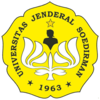Authentication of Deed of Minutes of General Meeting of Shareholders Implemented With The Concept of Cyber Notary Reviewed From Article 16 Paragraph (1) Letter M of Law No. 2 of 2014 On Notary Department
Abstract
Cyber Notary is the use or utilization of information technology such as computers, computer networks, and/or other electronic media, such as teleconferences or video conferences in carrying out the tasks of the authority of a Notary Public. This study analyzes the authentication of electronic documents in the form of the minutes of the General Meeting of Shareholders in the Cyber Notary concept and the proof of the minutes of the General Meeting of Shareholders held with the concept of Cyber Notary. The research method used in this study is normative juridical. The source of legal material in this research is secondary legal material. This Legal Material Analysis Method is Normative Qualitative. Based on the results of the study found that Authentication of electronic documents in the form of the minutes of the General Meeting of Shareholders in the concept of Cyber Notary can be done by means of a Notary does not need to be present during the General Meeting of Shareholders of the Cyber Notary takes place. If the Notary is present directly at the meeting then it is actually dangerous for the Notary, because in the Cyber Notary RUPS there are meeting participants who attend using teleconferences or video conferences that do not allow the Notary to get to know all meeting participants who were present at the meeting. Making Deed of Minutes of the meeting is sufficient to be made by a Notary based on the Minutes of Meeting under the hand of the authorized shareholders to the Board of Directors to be drawn up by a Notary.
Keywords: Strength of Proof; GMS Deed; Cyber Notary.
Full Text:
PDFReferences
Adjie, H. (2014) Hukum Notaris Indonesia Tafsir Tematik Terhadap Undang-undang No. 30 Tahun 2004 tentang Jabatan Notaris. Bandung: Rafika Aditama.
Budiarto, Agus. (2006). Kedudukan Hukum dan Tanggungjawab Pendiri Perseroan Terbatas. Bogor: Ghalia Indonesia.
Christopher L. R. (1990). Company Directors, Liabilities, Rights and Duties. CCH Editions Limited, Third Edition.
Fuady, M. (2002). Doktrin-Doktrin Dalam Corporate Law dan Eksistensinya Dalam Hukum Indonesia. Bandung: Citra Aditya Bakti.
Kansil. (1996). Pokok-Pokok Hukum Perseroan Terbatas. Jakarta: PT. Pustaka Sinar Harapan.
Kurniawan. (2014). Hukum Perusahaan Karakteristik Badan Usaha Berbadan Hukum dan Tidak Berbadan Hukum Di Indonesia. Yogyakarta: Genta Publishing.
Muhammad, A. (2010). Hukum Perusahaan Indonesia. Bandung: PT Citra Aditya Bakti.
Situmorang,V.M. dan Cormentyna Sitanggang. (1993). Grosse Akta dalam Pembuktian dan Eksekusi. Jakarta: Rineka Cipta.
Suparni, Niniek. (2009). Cyberspace: Problematika & Antisipasi Pengaturannya. Jakarta: Sinar Grafika.
Makarim, E. (2015). “Keautentikan Dokumen Publik Elektronik Dalam Administrasi Pemerintahan Dan Pelayanan Publik”. Jurnal Hukum dan Pembangunan Tahun. 45 (4).
Salami, RU, dan Rahadi Wasi Bintoro. (2013). “Alternatif Penyelesaian Sengketa Dalam Sengketa Transaksi Elektronik (E-commerce)”. Jurnal Dinamika Hukum. 13(1) hlm. 124-135.
Sunarto, S. (2007). Peranan Kode Etik Profesi Dalam Pemuliaan Jabatan Notaris. Tesis pada Sekolah Pasca Magister Kenotariatan. Universitas Gadjah Mada. Yogyakarta.
Triatmojo, M. (2007). Fakultas Hukum UGM sebagai Lembaga Pendidikan Notaris. Yogyakarta : Surat Kabar Harian Kedaulatan Rakyat.
Indexed By:
 | |
 |  |
 |
 Authentica: Privat Law Journal Faculty of Law, Universitas Jenderal Soedirman Yustisia IV Building, Law Journal Center Purwokerto, Central Java, Indonesia, 53122 |

This work is licensed under a Creative Commons Attribution 4.0 International License.
